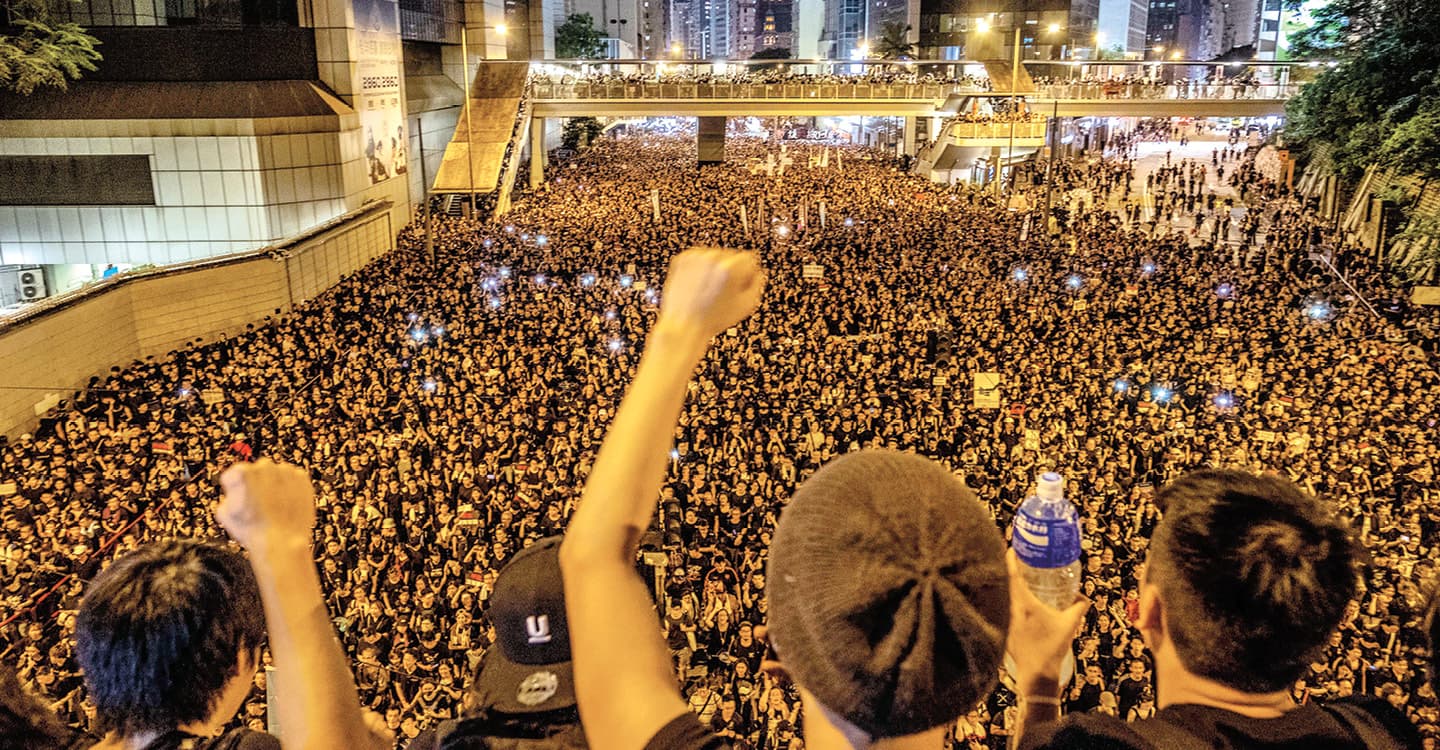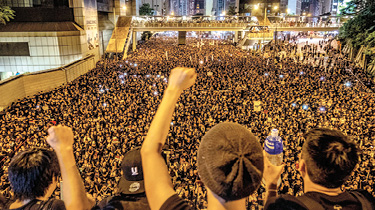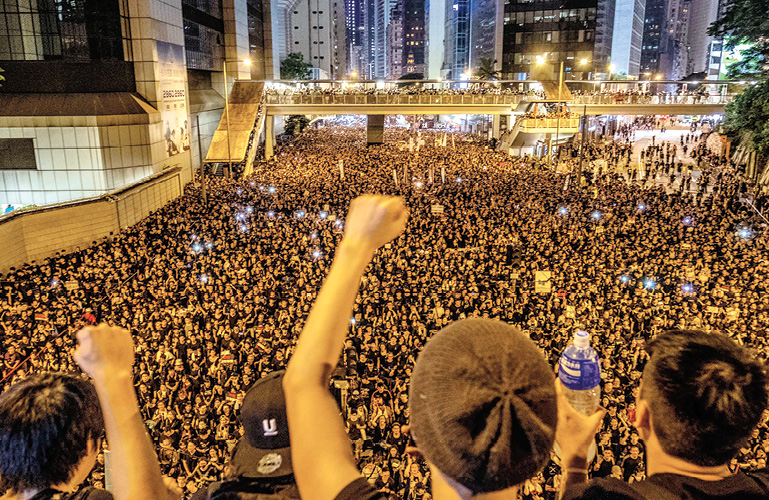As far as the eye could see, a vast ocean of people overflowed the wide skyscraper-lined avenues of central Hong Kong: young and old carrying signs, parents pushing strollers, students carrying phones to film the spectacle. The massive protest drew
1 million people—one in seven residents of the territory.
It was part of a series of protests that continued throughout the summer. In all of them, Hong Kong’s youth were front and center. They say they’re taking a stand for Hong Kong’s autonomy.
“We cannot give up,” says So Hiu-ching, 16, “because we won’t win without even trying.”
The protests began in June over a proposed law that would have made it easier to transfer criminal suspects from Hong Kong to mainland China. While Hong Kong is known for its independent courts, China’s judicial system is controlled by the Communist Party and plagued by corruption. Critics worried that the law would force political opponents in Hong Kong to face trial in China.
As far as the eye could see, a vast ocean of people overflowed the wide skyscraper-lined avenues of central Hong Kong. Young and old people carried signs. Parents pushed strollers, and students carried phones to film the spectacle. The massive protest drew 1 million people. That’s about one in every seven residents of the territory.
It was part of a series of protests that continued throughout the summer.
In all of them, Hong Kong’s youth were front and center. They say they’re taking a stand for Hong Kong’s autonomy.
“We cannot give up,” says So Hiu-ching, 16, “because we won’t win without even trying.”
The protests began in June over a proposed law. The law would have made it easier to transfer criminal suspects from Hong Kong to mainland China. While Hong Kong is known for its independent courts, things aren’t the same in China. The Communist Party controls China’s judicial system, which is plagued by corruption. Critics worried that the law would force political opponents in Hong Kong to face trial in China.



